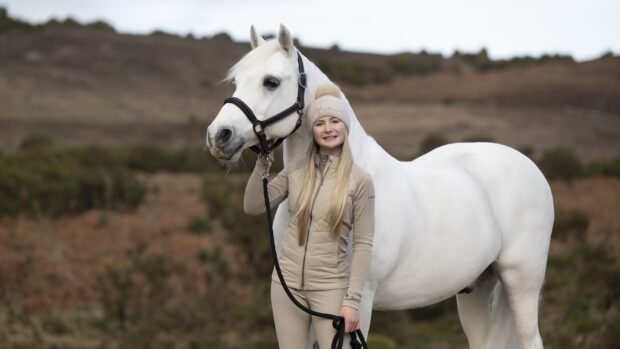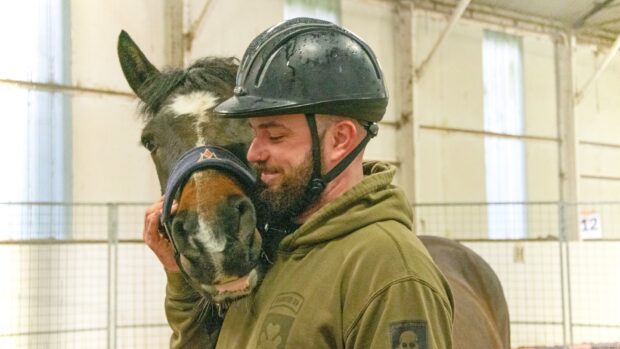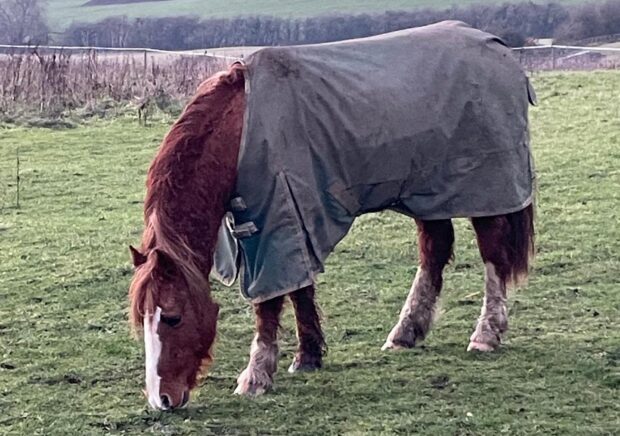Two new bodies have been created to offer training and set standards in the area of equine genital hygiene.
British Equine Hygienists Association (BEHA) is a group of “independent sheath cleaners and mare hygienists, who have come together to launch the equine industry’s first-ever association of recognised professionals here in the UK and Ireland with the purpose of setting industry standards and best practice under one governing body”. The Equine Intimate Health Federation is offering a diploma in equine intimate health, and membership for which practitioners have to be qualified and insured, and agree to adhere to best-practice guidelines.
Stacy Harris, co-director of Harris Equine Intimate Health Specialists who founded the federation, told H&H she has been in the industry nearly 10 years and was concerned about the varying levels of knowledge, standards and even products used by practitioners.
“I think it’s really important there’s standardised practice,” she said. “I think there needs to be a bit more regulation and inclusivity. There hasn’t been any training; anyone can pick up a cloth and set up business on people’s horses.”
Ms Harris said the course, which has six modules and concludes with an in-person practical and theory assessments, is accredited by UK Rural Skills and the CPD Group. Anyone who wants to be a member of the federation has to pass this or another accredited course and commit to continuing professional development (CPD).
“I want to make sure everyone has that level of knowledge and those standards,” she said. “A lot of us have been trying to convince the public and vets and I think we’re getting there, and this is the next step.”
BEHA hygienist Allie Macleod told H&H the association’s aim is to set standards and best practice. It is to launch accredited CPD courses for experienced practitioners this year.
She said she was also aware of concerning variations in practice and hygiene.
“Some uphold really high standards but others don’t seem aware of the importance of being a hygienic hygienist, or what best practice is,” she said.
Miss Macleod said it is early days but the aim is for every “territory” of the UK to have a BEHA-registered member who is experienced and insured, and has been “vetted” by the association.
“The importance of [equine intimate hygiene] is starting to take hold so we need to give it a bit of structure,” she said.
British Equine Veterinary Association (BEVA) council member and internal medicine specialist Victoria South told H&H inspecting horses’ skin can help detect areas that could be of concern such as cancerous.
“If we find anything unusual on a horse’s skin, we should seek prompt veterinary attention to advise on next diagnostic and therapeutic steps,” she said. “For male horses, the inspection of the skin of the sheath and penis can be challenging, so when the opportunity arrives, such as after sedation for another procedure, it is sensible to think about looking at this region.
“However, just like humans, healthy skin all over the horse’s body depends upon the presence of commensal (non-harmful) bacteria and natural oils to keep it in optimal condition. Repeated cleaning of genital regions could be detrimental and may run the risk of disturbing this vital skin bacterial population and upset the balance of natural oils.”
BEVA veterinary projects officer Lucy Grieve advised that sheaths should not be cleaned unless there is a clinical problem.
“But do check them when the opportunity arises,” she said. “To carry out a thorough examination you need to sedate most horses, otherwise you can cause damage to the penis and there is also risk of injury for the person.
“If the horse has a medical history and clinical signs that warrant the penis and sheath being examined and/or cleaned, we would advise this is done under the direction of a vet to make sure there is a medical need for what is being done. If the balance of normal bacterial flora is disturbed, it can be difficult to correct this, so it is best not to interfere with these delicate areas unless it’s necessary.”
You might also be interested in:

‘I’ve got my boy back’: sheath bean removal transforms horse’s life
The thoroughbred had been out of work for four years before the bean was removed

Huge mass of tissue removed from tiny pony’s genitals

Subscribe to Horse & Hound magazine today – and enjoy unlimited website access all year round
Horse & Hound magazine, out every Thursday, is packed with all the latest news and reports, as well as interviews, specials, nostalgia, vet and training advice. Find how you can enjoy the magazine delivered to your door every week, plus options to upgrade your subscription to access our online service that brings you breaking news and reports as well as other benefits.




